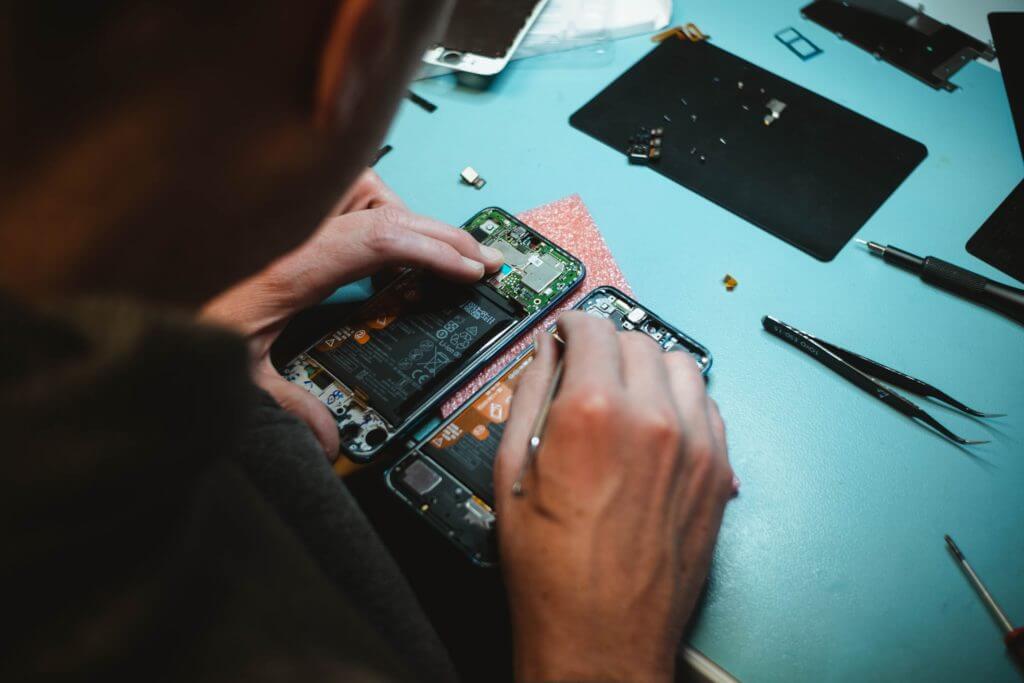International E-Waste Day was held on Wednesday 14th October 2020, when it was revealed that in 2019, worldwide we produced 53.6 million tonnes of electronic waste. That’s the equivalent of 50 Eiffel Towers! It’s been estimated that by 2050, we will be generating 120 million tonnes of e-waste (source: UN Environment Programme).
DCW supports International E-Waste Day as it aligns with our business objectives to increase recycling of unwanted electrical and electronic items. In this latest blog, we discuss the environmental impact of E-Waste.
In recent years, plastic waste has been the focus of our concern thanks to the likes of Sir David Attenborough highlighting the devastating impact single-use plastic has on the environment. Whilst this issue is incredibly important and we absolutely must continue to fight back against single-use plastic to save our planet, WEEE (Waste Electrical and Electronic Equipment) also needs to be a priority. As the fastest growing waste stream in the world, it could be considered to be an even bigger problem than plastic waste as WEEE is not just rubbish, it’s a valuable economic resource. An estimated 7% of the world’s gold is contained in WEEE waste and annually, the raw materials found within it are worth approximately €50.8 billion (source: Circular) which is more than the GDP of most countries.
The UK is the second largest producer of electronic waste in the world according to the Global E-Waste Monitor Report (source: Let’s Recycle). Just imagine the amount of valuable raw material such as gold, silver, copper, platinum and palladium that is leaving our country and heading to China where we don’t monitor the supply chain, so we have no idea what happens to it. DCW is committed to the development of a circular economy, ensuring that all WEEE collected by DCW is re-processed in the UK at licenced facilities. Research by Material Focus* has shown that the UK economy could save £370 million if all the old electricals that are disposed of were recycled (source: Let’s Recycle).
How do we tackle the issue?
So how can we tackle the issue and make a difference? We believe that manufacturing leaders need to lead a change by adopting and developing a circular approach to curb the throwaway culture whilst also involving consumers. We need to ensure that the extraction of valuable metals is an integral part of the recycling process so that we can preserve those raw materials such as gold and copper before, in some cases, it’s sent abroad.
Let’s look at BT as an example. The communications services company is running a campaign to encourage consumers to return their old routers so that BT can refurbish them and re-use suitable parts. Currently, BT claims they get back just 30% of old routers from customers to recycle but would like to significantly increase this figure. BT is also removing electronic circuit boards from old telephone exchanges which are full of valuable metals. These metals are now being recycled, with 250 gold strips from each board being transformed into 1oz of gold. In the future, BT hopes to harvest the old copper lines which can be found in the ground under most UK homes. Many of these lines are no longer in use due to an increasing number of homes being served by super-fast fibre optic broadband (source: Insider Media). That’s metres upon metres of copper sitting in the ground serving no purpose.
More organisations need to follow companies such as BT and Microsoft who are now manufacturing products with recycling or repairability in mind. This will allow us to generate revenue and to ensure minerals that are under threat are preserved and re-processed.
Education is another important factor when it comes to adjusting our attitudes towards electronic waste. By understanding the process and the role we can play in reducing electronic waste, there’s hope we can achieve the same results for WEEE as we have in recent years for plastic recycling.
How can DCW help you?
Due to the current pandemic, we are in danger of increasing the amount of WEEE the UK produces as many of us will now have two offices, one at home and another at work with duplicate equipment e.g. computers phones and printers. We’re starting to rely on our electronic products a lot more and that means this waste stream will continue to grow in the future if we don’t do something about it now.
So why not take a look around you and see if you can spot any old electrical equipment that is gathering dust and instead consider recycling it.
As a waste management and recycling company, DCW provides a fully compliant WEEE recycling collection service helping you to meet your own obligations under the evolving regulations. All WEEE collected and processed by DCW is re-processed in the UK at licenced facilities. We can collect electronic waste including:
- Laptops and desktop computers
- Mobile phones and devices
- Hard drives
- Refrigerators
- Toasters
- Most other domestic and commercial electrical / electronic equipment
By using our fully compliant services, you can make a difference and reduce the volume of UK electrical and electronic waste that heads to landfill. Call the team today on 01392 690193 or click here to email us.
*Material Focus is a not-for-profit organisation established to help the UK meet its electrical reuse and recycling targets.
